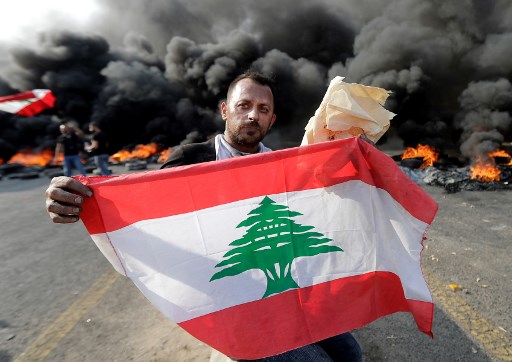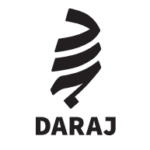Those who thought Hezbollah was behind them were baffled by the video of that young man in Nabatieh, who demolished the office sign of Mohammad Raad, the leader of the party’s parliamentary bloc. Then they were disconcerted by the crowd’s chants against Gebran Bassil, Hezbollah’s ally and protégé, in Downtown Beirut.
The same question had been asked about the Egyptian youths who took to the streets a few weeks ago: “Who are they?” The regime answered that they were members of the Muslim Brotherhood.
And in Baghdad: who were those who filled the streets of Iraqi cities? The authorities said they were puppets of the American embassy.

Conspiracy has its fair share in our consciousness, and although it is often justified, things are different this time around. The New Protesters in Arab cities are outsiders to the dominant political rhetoric that has reigned during the post-revolution phase and the wars that followed. This is the “Post-Victory Generation.” It came to life after the triumpth over Isis in Iraq, over the Muslim Brotherhood in Egypt, and Hezbollah’s victory in Syria and Lebanon. The effect of these victories has been on the wane. Suddenly, we have come face-to-face with the “Post-Resistance Generation” in Syria, “Post-Popular Mobilization Generation” in Iraq, and “Post-Rabaa Generation” in Egypt (the August 2013 massacre of 1000 Muslim Brotherhood peaceful protesters.) The politicians’ response to this generation has been nothing more than holding on to power, prevarication, impotence, and corruption.
Lebanon is currently ruled by the “Post-Syria Victory” regime. Matters have settled for Hezbollah. The party brought forward its main Christian ally, Michel Aoun, and made him a president. It appointed a prime minister representing the Sunnis, Saad Hariri: another powerless man who has no means to stand up to any of the party’s or its allies’ wishes and commands.
But now what?
How could a team like that govern? The war in Syria was a front that hid their failure in all its facets. The war covered up corruption and allowed for new types of division to foster. But as the battles on the other side of the border abated, the monumental failure of these local politicians was laid bare. Hezbollah is the de facto ruler, a truth the party had tried to disguise by putting together a mere semblance of a governing body. The current protests may not be against the party itself, but they certainly target the very facade that the party created.
Was Hezbollah’s so-called military “triumph” in Syria sufficient for it to hold the reins of power in Lebanon? Apparently not. The war in Syria was a pretext that allowed the party to evade the demands of a government in deep crisis. And now, suddenly, the New Generation erupted, united beyond the divisions fomented by the Syrian war. Pictures of Saad Hariri were burnt in Tripoli, the Sunni stronghold. The Beiruti crowds chanted against Gebran Bassil. In Nabatieh, the offices of Hezbollah and Amal (the other Shia movement,) were set on fire. This is not a revolution against the factions’ leaders. This is a clear declaration of their failure, a statement against their corruption. Regardless of who is “behind” these protests, this revolution is moving on to reveal what people have been hiding in the depths of their hearts during the era of “glorious victories.” This is a time when bread-and-butter issues are taking over.
After the tragedy of his 10-day stay in a Saudi prison, Saad Hariri returned to his country as the weakest partner in power and has since left his Sunni constituencies jobless. Gebran Bassil seized the share of the Christians and divided it up between himself and his favourites. That share has already been dwindling, and no longer benefits anyone beside the privileged, private jets owners. As for “Hezbollah,” it is besieged by sanctions, and the shadow economy it once controlled is disrupted by the scarcity of Iranian funds. Not to mention the party’s weakening ability to recruit young men to fight on its behalf in Syria. Many of those protesters who tore down its deputies’ pictures in the south, are younger siblings of the men who fought in Syria in return for the party’s financial aid.
All parties find themselves facing the question of who merits to be in power. The government is being severely punished by the international community. Internally, it is corrupt and power-hungry. In this context, it becomes difficult to oversimplify the meaning of the revolution. The protesters will not allow any politician to claim and take advantage of their uprising. They will follow to his own doorstep whoever tries to turn a blind eye to what is happening. The financial crisis is about to get worse, and so will the public outrage. Iraq has oil. That may prevent those in power from losing their grip on things. The military may extend the life of those in power in post-Brotherhood Egypt. But Lebanon has nothing to shield the politicians from the protests. The latter were ignited in the very strongholds of the parties in power. No one seems to be able to control them.
Two days ago, Gebran Bassil threatened to “turn the tables” on everyone. Most probably, the tables will be turned on him. Unless Saad Hariri decides to bear alone the consequences and stay as head of government, a position that he once thought compensated for the humiliating losses he endured in Riyadh.






